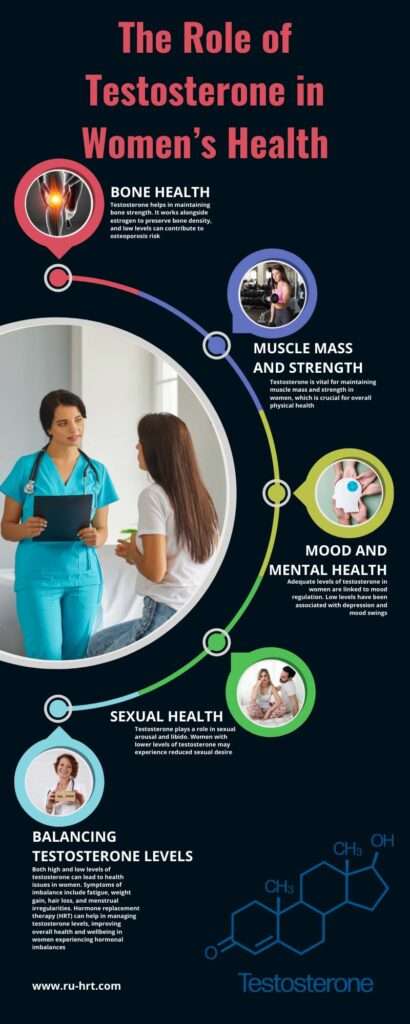The Surprising Importance of Testosterone for Women's Health
Introduction:
Testosterone is often seen as a male hormone, but it also plays a critical role in women’s health. In this article, we’ll delve into why testosterone is important for women, shedding light on its lesser-known but significant effects.
What is Testosterone?
Testosterone is a steroid hormone found in both men and women. In women, it’s produced in the ovaries, adrenal glands, and peripheral tissues. It’s involved in a variety of bodily functions, from sexual health to bone density.
The Role of Testosterone in Women:
- Bone Health: Testosterone helps in maintaining bone strength. It works alongside estrogen to preserve bone density, and low levels can contribute to osteoporosis risk (Riggs et al., 2002).
- Muscle Mass and Strength: Testosterone is vital for maintaining muscle mass and strength in women, which is crucial for overall physical health (Griggs et al., 1989).
- Mood and Mental Health: Adequate levels of testosterone in women are linked to mood regulation. Low levels have been associated with depression and mood swings (Sherwin, 2003).
- Sexual Health: Testosterone plays a role in sexual arousal and libido. Women with lower levels of testosterone may experience reduced sexual desire (Davis et al., 2005).
Testosterone Imbalance and Its Effects:
Both high and low levels of testosterone can lead to health issues in women. Symptoms of imbalance include fatigue, weight gain, hair loss, and menstrual irregularities.
Managing Testosterone Levels:
Hormone replacement therapy (HRT) can help in managing testosterone levels, improving overall health and wellbeing in women experiencing hormonal imbalances.
Conclusion:
Testosterone, although typically associated with men, is vital for women’s health. Understanding and managing its levels can significantly impact a woman’s quality of life and health.

References:
- Riggs, B. L., et al. (2002). “Sex Steroids and the Construction and Conservation of the Adult Skeleton.” Endocrine Reviews.
- Griggs, R. C., et al. (1989). “Effect of Testosterone on Muscle Mass and Muscle Protein Synthesis.” Journal of Applied Physiology.
- Sherwin, B. B. (2003). “Testosterone and mood in women.” Psychoneuroendocrinology.
- Davis, S. R., et al. (2005). “Testosterone in women—the clinical significance.” The Lancet Diabetes & Endocrinology.

